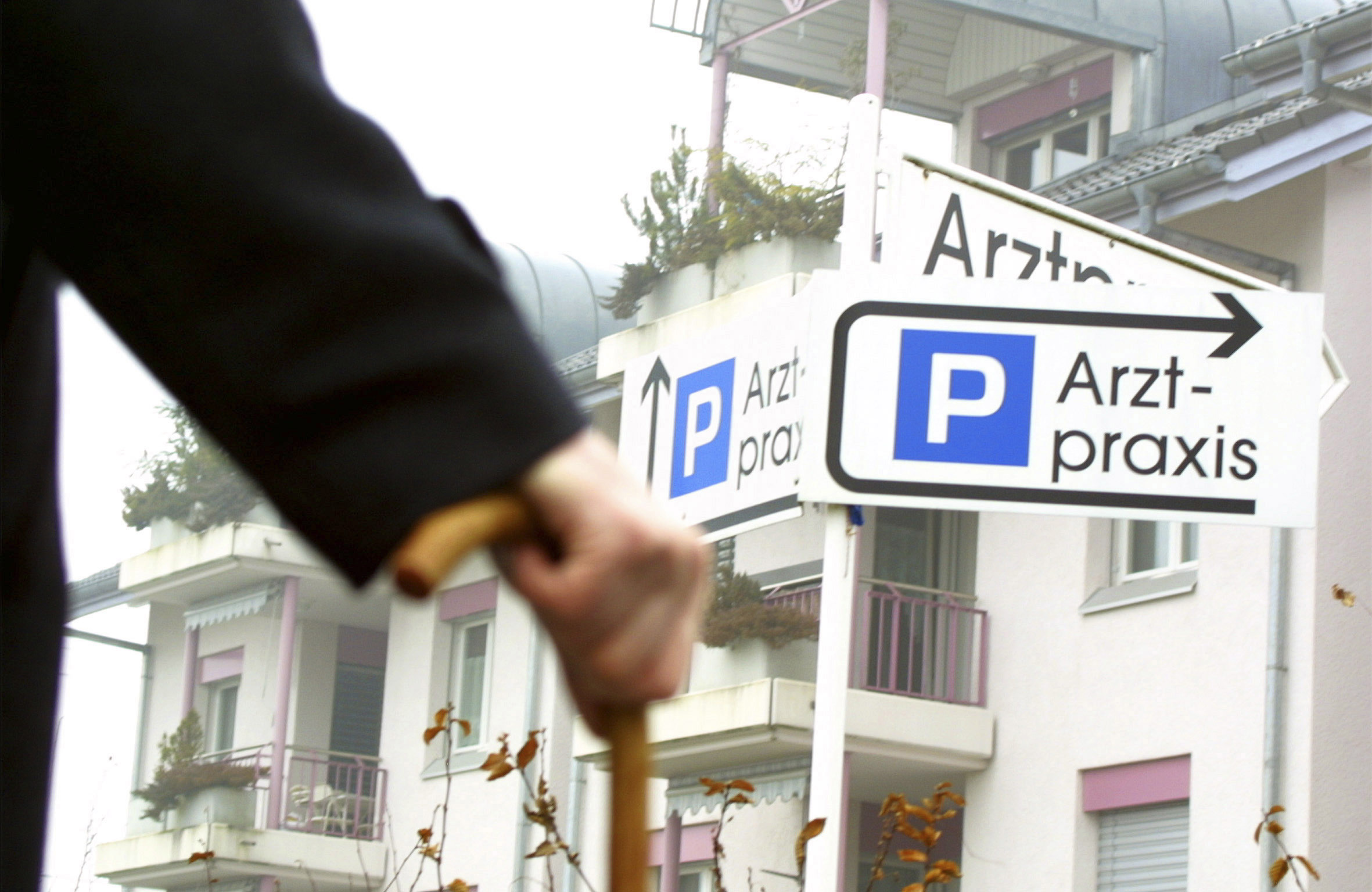Health insurance reform heading for rejection at the polls

Supporters of a single health insurance system are unlikely to win in the nationwide vote on September 28th 2014. Their key arguments appear to lack the necessary power to convince citizens, according to the latest opinion poll.
The survey, commissioned by the Swiss Broadcasting Corporation, shows a margin of 16 percentage points between respondents in favour and those against the proposal to introduce a single payer system for the mandatory health insurance.
With at least 54% currently against and 8% still undecided, the plan by centre-left parties and consumer groups stands virtually no realistic chance of winning a majority (for details see graphic).

“The campaigners have lost the fight over possible cost reduction and lower health insurance premiums,” political scientist Claude Longchamp says. “A majority of citizens believe in the status quo.”
There are currently more than 60 health insurance companies offering basic coverage for health risks.

More
Political cures to stem health insurance costs
“It is generally accepted that Switzerland has a high-quality health system. The willingness to reform it has lost ground.”
Longchamp says people are much more concerned that the future will bring higher costs or a reduced service.
Language divide
Based on the findings of the survey by his GfS Bern research and polling institute and comparisons with the ten previous health votes over the past two decades, Longchamp expects a rejection rate of 60%.
He expects a clear language divide between the majority German-speaking part of the country in favour and the French- and Italian-speaking regions against.
Approval by more than 40% of voters could be seen as a relative success for promoters of the initiative, according to Longchamp.
Figures for the latest poll show only minor changes compared with a first survey at the end of August.
The political scientist also notes that only a few respondents haven’t yet made up their mind on the issue. “The outcome of the vote affects most people directly.”
VAT rejection
The outcome of the ballot on a proposed reduction in value-added tax (VAT) for restaurants, also scheduled for September 28, appears to be more open, but voters are more likely to reject the initiative than to approve it.
Supporters – the restaurant sector and the rightwing Swiss People’s Party – lag behind by only five percentage points.
But they failed to win ground in the last four weeks of the campaign despite their active campaign, notably in restaurants, the media and with posters.
GfS Bern political scientist Martina Imfeld also notes that opponents have so far kept a low profile except for Finance Minister Eveline Widmer-Schlumpf. In numerous speeches she has called on voters to reject the tax reduction.
Gut feeling

More
Restaurant owners cry foul over takeaways
One of the most striking findings of the survey is the relatively high number of undecided citizens. Many respondents appear to be basing their decision on a rather vague feeling.
“Only 27% of respondents said they had clear arguments to justify their opinion on the issue at stake,” Imfeld said.
Longchamp added that it was rare for a vote campaign to have such a limited impact on citizens.
“The argument that customers in restaurants would benefit from lower prices if the tax rate were reduced seems to lack credibility,” he said.
The restaurant and hotel sector has complained about the different VAT rates for food and drink served in restaurants – 8% – and products sold over the counter in takeaways with just 2.5%.
The discrepancy goes back to 1995 when VAT was introduced in Switzerland.
Turnout on September 28 is expected to be average, that is around 45%, following a mobilisation described as normal.
Experts say the tax vote appeals to a relatively small group of people who are directly affected. At the same time pollsters found a “certain consternation” among citizens hoping for lower health insurance premiums.
The pollsters interviewed 1,421 Swiss citizens from across the country for the second of two nationwide surveys ahead of the September 28 vote.
Swiss expatriates are not included in the poll. The telephone interviews took place between September 6-13. The margin of error is 2.7%.
The survey was commissioned by the Swiss Broadcasting Corporation, swissinfo’s parent company, and carried out by the leading GfS Bern research and polling institute.
Voters decide on two separate issues:
A proposal by centre-left parties, trade unions and patients pressure groups to introduce a single health insurance company.
An initiative, launched by the restaurant and hotel association, to set a unified Value Added Tax for eating out.
It is the third of four sets of nationwide ballots this year. At the same time, elections and votes on a variety of issues take place at cantonal and local level.

In compliance with the JTI standards
More: SWI swissinfo.ch certified by the Journalism Trust Initiative










You can find an overview of ongoing debates with our journalists here . Please join us!
If you want to start a conversation about a topic raised in this article or want to report factual errors, email us at english@swissinfo.ch.